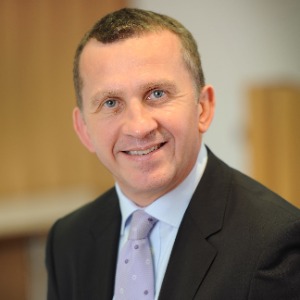
Leader Lessons From The Pandemic: Empowering Remote-Working Employees

Crowe Global’s Art of Smart content is founded upon four pillars of success in decision-making: growth, diversity, boldness and innovation. It aims to help business leaders make smarter decisions. When the COVID-19 chaos hit, it impacted every organization in the world to some degree. Some leaders were well prepared to make smart decisions and pivot, or to re-write business plans; others were not.
We asked decision-makers from all over the globe, and across a variety of industries, to share their honest and insightful learnings from 2020. Here are their selected answers. They will hopefully serve as lessons to heed for fellow business leaders looking to make smarter decisions that have lasting value.
 |
Cephas Osoro, Head of Commercial Services, Crowe Erastus (Kenya): “I never thought that working remotely would work in my country,” says Kenya-based Cephas Osoro, Partner and Head of Commercial Services at Crowe Erastus. “I have been skeptical about people having the personal discipline to work efficiently from home. If you are able to measure the performance of your staff members, then you don’t have to keep on checking on them. I enjoyed working from home and actually spent more hours than in the office. I also realize that you do not have to have in-person meetings, which is a blessing when you consider the traffic in Nairobi. |

|
David Morel, CEO, Tiger Recruitment: |

|
Nigel Bostock, Chief Executive, Crowe UK: “As business leaders, we constantly experience unexpected events,” says Nigel Bostock, Chief Executive, Crowe UK. “Taking Europe for example, recent years have seen a gradual increase in ‘business as unusual’ in the middle of economic, political and Brexit uncertainty. However, the COVID-19 pandemic has delivered an immediate, significant and unprecedented multiplier to the ‘business as unusual’ equation. The crisis has been a test like never before and an exam we all have had no option but to participate in. |
 |
Pesh Framjee, Global Head of Non-Profits, Crowe UK: “As we moved from focusing on the safety of staff and setting up remote working to longer-term lockdowns, we had to understand that these events impacted different people in different ways,” says UK-based Pesh Framjee, Global Head of Non Profits at Crowe. “I’m sitting here in my study – I’ve got a room, I’ve got a good place to work. However, many of our staff are in shared accommodation or have kids to look after – how do they make it work? It’s made me much more aware about the well-being of our teams. Whereas before people came into the office and we had mostly discussed work, now we’re thinking about how we can help in other ways – how do we keep them motivated, how do we engage with them as a team? Virtual drinks and Christmas parties help, but there is much more to do; we need to understand their challenges and different circumstances and what we need to do to respond.” |
 |
Steven Strammello, Chief Risk Officer, Crowe LLP (USA): “It’s really easy to focus on policies and procedures when hit with a crisis, but what can’t be ignored is that human lives have changed,” says Steven Strammello, Chief Risk Officer at Crowe LLP. “It’s important to help human beings through the change because everyone reacts differently. Some embrace it and some resist it.
|
.jpg?rev=95515d94aac24dc4b5befcb4961c3771&w=1140&hash=E6286BF1D77C446A4466D09B7843FD65)
